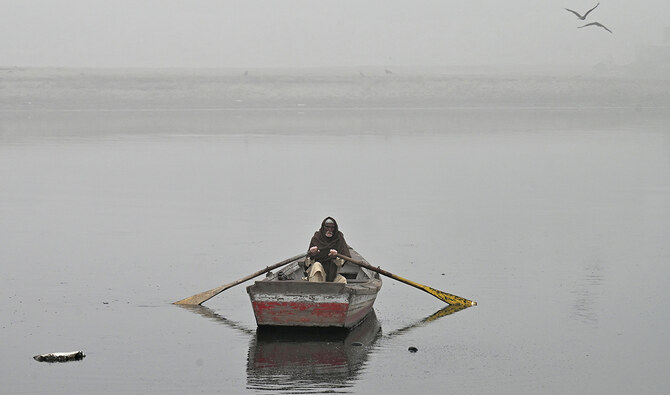ISLAMABAD: Light rains forecast by Pakistan's Meteorological Department from Nov. 14-16 in most districts of Punjab are likely to reduce smog in the eastern province, the provincial's disaster management authority said on Wednesday, as the deteriorating air quality continues to put the health of millions of people at risk.
Toxic smog has shrouded Lahore and 17 other districts in Punjab since last month. Health officials say more than 40,000 people have been treated for respiratory ailments forcing Punjab to close schools until Nov. 17 to protect children’s health. The UN children’s agency has warned that the health of 11 million children in Punjab is in danger due to air pollution.
South Asia, particularly India and Pakistan, is shrouded in intense pollution every winter as cold air traps emissions, dust, and smoke from farm fires. Pollution could cut more than five years from people’s life expectancy in the region, a study found last year.
“According to the Meteorological Department, rains are likely in Punjab from November 14 to 16,” the Provincial Disaster Management Authority (PDMA) Punjab said. “Director General PDMA Irfan Ali Kathia said that the possible rains are likely to reduce smog.”
Rains are expected to lash Rawalpindi, Murree, Attock, Chakwal, Talagang, Jhelum, Faisalabad, Gujranwala, Lahore, Mianwali, Khushab and Sargodha districts of Punjab, with thunderstorms predicted for Bhakkar, Layyah, and Dera Ghazi Khan districts on Nov. 15.
PDMA Punjab urged people to wear face masks as a precautionary measure against smog and not to venture out unnecessarily.
Seasonal crop burn-off by farmers on the outskirts of Lahore also contributed to toxic air, which the World Health Organization says can cause strokes, heart disease, lung cancer and respiratory diseases.


















